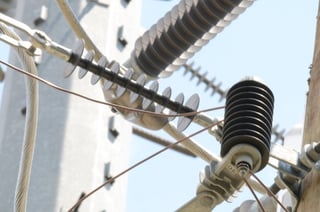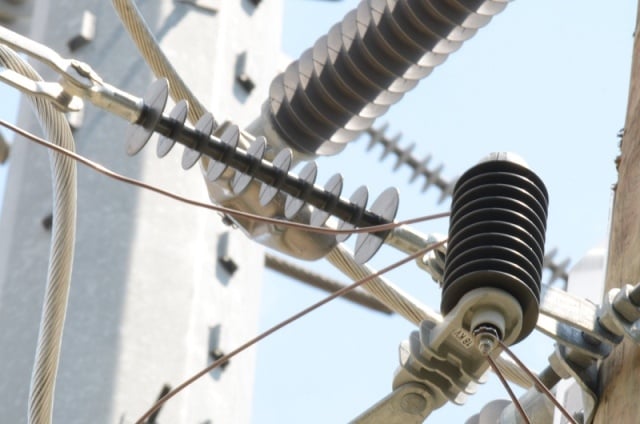Distribution lines are likely targets for lightning strikes. Once the lightning touches the line, the surge divides and travels both directions. The lightning surge will then probably cause an insulator to flash over. Why?
A 10 kA lightning stroke on a typical line results in 4,000,000 volts traveling to the insulator. If the distribution line is a 25 kV nominal system, the standard transformer insulation strength is 150 kV. Anything above results in a flashover. The traveling surge does not stop either; it continues down the line to other insulators and transformers.
4,000,000 volts traveling to the insulator. If the distribution line is a 25 kV nominal system, the standard transformer insulation strength is 150 kV. Anything above results in a flashover. The traveling surge does not stop either; it continues down the line to other insulators and transformers.
Lightning may cause a temporary or permanent interruption when it strikes. With the increased amount of technology in homes, customers are putting pressure on the electric utilities to keep interruptions to a minimum. Utilities have been forced to investigate methods to improve reliability. Fortunately, the surge can be effectively managed through the selection of the appropriate arrester. Arresters are engineered to serve and protect a utility's assets; they are essential on distribution lines.
If you are interested in protecting your distribution equipment, join our webinar! The webinar will focus on selecting the proper arrester and while considering insulation coordination, line lead length impact, underground protection and ground lead disconnectors.
More articles of the arrester can be found at https://hubbellcdn.com/literature/EU1292.pdf


